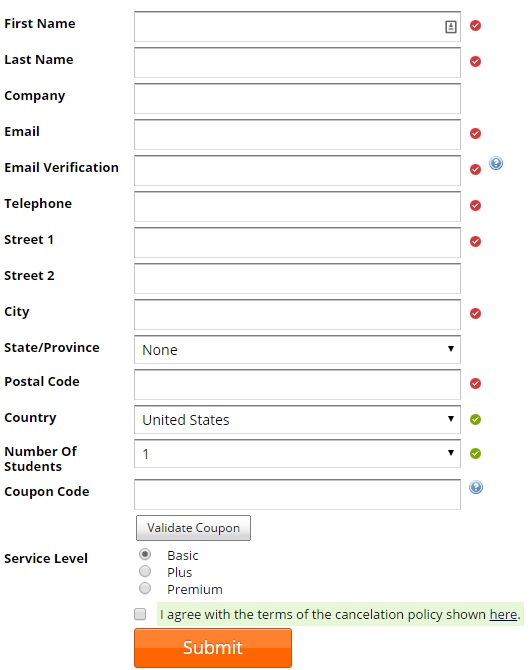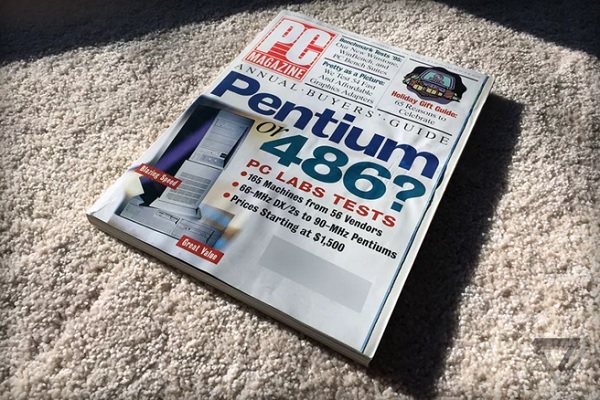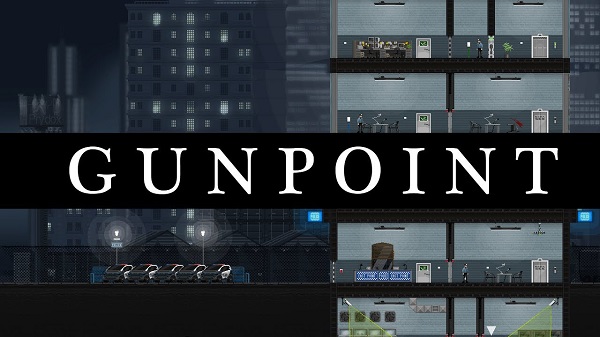equilibrium
— issue #17 {December 2015} —
.editorial
Hello, and welcome to the seventeenth issue of Equilibrium.
A few weeks ago, I received the following email:
Hi Stathis,
My name is XXX and I'm a Technology Evangelist at YYY, a technology training company. We are working on a PHP Solutions from the Web course, which is free and contains a series of videos showing different solutions PHP experts have posted on their blogs/websites.
In the course, our own PHP experts demonstrate the solutions, essentially turning the written articles into videos. In doing so, we credit the author and point out the page on which the solution was found. We would be interested in including a video version of How to Resize a Logo to Specific Dimensions Keeping Its Aspect Ratio Using PHP.
If we create this video, would you be willing to post it (assuming you like it) on your website and credit YYY by providing a link to our PHP training?
Please let me know if you would be interested.
Thanks,
XXX
I removed the sender's personal details since I didn't want identify them without asking for permission, as well as the company's name, since (spoiler alert) I don't want to give them a backlink. Underlined sections in all emails denote (removed) hyperlinks.
So, a company claims that is working on a free training course and wants to create a lesson based on an article I've written. Therefore, they ask my permission to use it, and they let me know about it in case I want to promote it. So far, so good.
What's sketchy though, is that they ask me to "credit" them by providing a very specific link to a page which is completely irrelevant to the video or the lesson. That smells SEO from miles away.
In addition to that, to register for that training course, you have to fill in the following form:

I personally find that the above requires quite a lot of personal information to register for a free course, but after a quick search I noticed that they also publish the lessons on YouTube, so I decided to reply, sending XXX the following email:
Hi XXX,
Nice to meet you and thanks for the interest in my article.
Sure, I'll be happy to link to the video, so if you end up creating it drop me an email to let me know. :)
Thanks,
Stathis
That's a fair reply, don't you think? They asked me that if they create the video and assuming I like it, if I would "credit" them, and I replied that I'll be happy to post a link to the video. I intentionally left out any mention to their SEO link, and got the reply I expected:
Hi Stathis,
Great! And can I just confirm that in addition to posting or linking to the video you are willing to also post a link to our PHP training page? If you would like to check out a few videos first to get a sense of how professionally done our work is, please visit our YouTube channel.
Thanks,
XXX
Confirm what XXX??? I think I was clear that I'll post a link to the video. And why are you trying to make me commit to something, when you clearly stated in your previous email that there were no strings attached?
These are some of the questions that a person who doesn't know how these SEO link hunters operate will think.
Here's my reply, stating the obvious, and explaining why I do not post SEO links:
Hi XXX,
As I mentioned in my email, I'm happy to post a link to the video (something similar to this), since that will be relevant to the article.
Regarding the link to the "PHP training" page though, I understand that you want to do some link building, but I cannot endorse something I don't have personal experience with. The link to the video should still be helpful to your SEO enteavours though. :)
Thanks,
Stathis
The link I provide as an example is for a tutorial that YYY actually created a video for. The video is posted on YouTube and includes an active link back to that blog post. The blog post includes the following text (with a link to the video on YouTube), in a prominent position:
UPDATE: YYY created a video about this library. If you’re a visual person, I’m sure you’ll like it ;) Check it out here!
Here's XXX's reply:
Hi Stathis,
I understand your position, but I'm afraid we really do need a link back to our site as a credit. Would you be willing to post a dofollow link to our free PHP tutorial here instead? We offer a range of free written tutorials on YYY.com as well as our paid courses.
Thanks,
XXX
At last, some honesty! Forget the pleasantries like "assuming you like it", etc. We're doing business here, sir! You asked us to create a video and promote it to our users, so you'll pay for it! We accept SEO currency.
That was my interpretation of XXX's email, and that would be ok if I was the one reaching out asking them to create a video to promote me or my company. But obviously, that wasn't the case, so here's what I replied:
Hi XXX,
Your free tutorial, requires registration, so that isn't somewhere I would link to.
To tell you the truth though, I really don't get what is there to negotiate for. I didn't reach out to you asking for anything. Instead, you're asking me to give you permission to use my own content for free, so you can create a video from it and use it as promotional material for your company.
The only "reward" for me is that you'll mention me in your video, and maybe (because in most of your videos you don't even do that) a link to my tutorial from YouTube. I already told you that I'm giving you permission to use my content (it's already published under an Attribution-ShareAlike Creative Commons license), and that I'm happy to promote that video -and in extent your company- through my blog since it might be useful to my readers.
Now, you're pressuring me to put an (essentially advertising) link on my site, in exchange for what? Providing you with free content?
Let me be clear: I don't even have to place the link to the free video, although I'm willing to. You do have to credit me though since you want to use my work, and you don't get to ask anything in exchange.
If you want to advertise on people's blogs, reach out to them being clear about it, and offer to pay them. Not that my answer would be different since I generally don't place ads in my blog, and -as I previously mentioned- I won't endorse anything that I don't have personal experience with.
So, to summarise, feel free to use my content to create a free video that provides value to the community and acts as a promotional material for your company, giving credit to my article. If you do that, you can let me know and I'll link to it. If you want to use my content without an attribution to me, then we can discuss the price, since that's not covered by the license it's published under.
But, under the current circumstances, you don't get to ask for "credit" and anything in return; that's insulting.
Thanks,
Stathis
I think I'm explaining all of my points in the email, so I won't bother you with any further explanation. To be honest, I didn't expect any further communication from them, but I received the following email:
Hi Stathis,
I certainly didn't mean to insult you, and I apologize. Some people I reach out to have your view on the matter, while others see the situation as more of an exchange (which is how we view it), so it is difficult to know during initial correspondence. Again, I'm sorry to have upset you, and we will not create the video or use your materials in any way. And yes, I did seek you out, so I would like to thank you for taking the time to even discuss this with me. Please accept my best wishes for you and your blog.
Kind regards,
XXX
My reply:
Hi XXX,
Most of the people you will approach this way should have the same view as me, since it's based on common sense. I think you've already experienced that since from the five videos you've posted in the series, it seems that you only got one link to your website, and one to the YouTube video (the same think I was willing to do).
Anyway, apology accepted, and sorry if I was too harsh. We would have both saved our time if you were clear from the beginning. When you write "if we create this video, would you be willing to post it (assuming you like it) ...", it means that there are no strings attached, when obviously there are!
Finally -just for the record since you mentioned that you won't use my materials in any way- as I mentioned in a previous email, all of my articles are published under a creative common licence that allows anyone to use them if they attribute the author.
Good luck to you too. :)
Regards,
Stathis
Since I mention in my email something about the links they received, I think it's appropriate to include some stats.
At the time of writing (early December 2015), YYY had 8 lessons published as part of the aforementioned course. I only visited the YouTube version of the videos, since YYY's site requires registration (see above). The YouTube videos provided links to the original blog posts in 5 cases. The actual blog posts, provided SEO links in 4 cases, no link at all in 3 cases, and one of them linked to YouTube (i.e. the example I mentioned in one of my emails).
Finally, without any particular reason other than I like charts and I wanted to visualise the numbers I've been looking at while doing my investigation, here's one which includes the views of each video, against the days it was published for (the numbers were taken on December 6th, 2015):

As always, enjoy the issue!
– Stathis
.blogs (interesting reads from around the web)
The Two Egg Problem — datagenetics.com, 2012
"There’s an interesting mind-teaser/puzzle that floats around the internet in waves. Sometimes it’s described as a Google interview question; sometimes it’s described as a Microsoft interview question. No matter of the origin, it’s a fun little critical thinking puzzle and in this blog posting I’m going to look into it and take it a little further..."
The McDonalds Monopoly Fraud — priceonomics.com, 2014
"Every year, for a limited time only, you can win big money collecting Monopoly pieces. The packaging on McDonalds products has properties from the board game, and if you get, say, both Boardwalk and Park Place, you win a $1 million prize.
The game has a cult following. People visit McDonalds each year -- even fast food haters -- just to collect the pieces and take a shot at winning $1MM. The promotion is so successful, McDonald’s has run it for two decades. But from 1995 to 2001, the game had only one real winner. This the story of Jerome Jacobson, the man who cheated at McDonalds Monopoly to a tune of $20 million."
Think the floppy disk is dead? Think again! — digitaltrends.com, 2015
Apparently, floppy disks are not dead yet.
Home for the holidays, and for a 20-year-old issue of PC Magazine
— theverge.com, 2014

The last time I was in my parents' basement, I ended up reading a magazine which featured in its cover a Pentium II processor. This article reminded me of that!
Blog Little Things — coffeecoder.net, 2015
"There are lots of things that can be blogged about and yet, we are stuck in the dilemma of, – “Is it worth something to write?”. The fear of being insignificant aka “Nobody will read it” syndrome, inhibits us from writing that simple thing that might have helped many people."
Why I'm not using your open source project — nczonline.net, 2015
Some solid advice from Nicholas C. Zakas regarding best practices to follow when open sourcing a project.
.podcasts (sometimes is better to listen)
Laravel News Podcast — podcast.laravel-news.com
The Laravel News Podcast brings you all the latest news and events related to Laravel. You can think of it at an audio version of the Laravel News newsletter which was featured in issue #6.
.open source ("show me your license")
Phaser — github.com
Phaser is a "fast, free and fun open source framework for Canvas and WebGL powered browser games". I've been using it for a few months for a prototype of a 2D HTML5 game I'm building for a UK-based startup, and the experience has been great so far. It has an active community, and is actively developed.
Its most recent version is 2.4.4, but a completely new version 3 is also developed at the same time. In this version, the framework will be renamed to Lazer (aka LazerJS) both to avoid any potential trademark issues with CBS, the Star Trek brand holders, and also -according to its creator- because Lazer has a lot of fundamental differencies from Phaser.
.books (physical or electronic)
Fahrenheit 451 — wikipedia.org

Fahrenheit 451 is a novel written by Ray Bradbury, published in 1953. The novel presents a future American society where books are outlawed being the source of all discord and unhappiness, and "firemen" burn any that are found.
According to Wikipedia, the title refers to the temperature that Bradbury asserted to be the autoignition temperature of paper, although in reality, scientists place the autoignition temperature of paper anywhere from high 440 degrees Fahrenheit to some 30 degrees hotter, depending on the study and type of paper.
"Everyone must leave something behind when he dies, my grandfather said. A child or a book or a painting or a house or a wall built or a pair of shoes made. Or a garden planted. Something your hand touched some way so your soul has somewhere to go when you die, and when people look at that tree or that flower you planted, you’re there. It doesn’t matter what you do, he said, so long as you change something from the way it was before you touched it into something that’s like you after you take your hands away. The difference between the man who cuts lawns and a real gardener is in the touching, he said. The lawn cutter might as well just not have been there at all; the gardener will be there a lifetime."
.games (everybody needs some play time)
Gunpoint — wikipedia.org

Gunpoint is a stealth-based puzzle-platformer created by a single indie developer. The game is set in the near future, where you take control of a freelance spy, who is tasked with infiltrating buildings to fulfil assignments from various clients using a number of high-tech gadgets. The game's length is very short, but it's quite interesting and enjoyable, and I loved its gameplay.
.non-profits (for a good cause)
PDSA — pdsa.org.uk
PDSA is a UK-based charity which is saving, protecting, and healing pets. They are dedicated to improving pet wellbeing in three very special ways – by educating owners, preventing disease and carrying out life-saving operations.
.bye
Thanks for reading Equilibrium!
If you've enjoyed reading it, consider spreading the word to your friends (the link is for a customisable tweet).
If you want to contact me, you can reply directly to this email.
P.S. If someone forwarded you this newsletter and want to subscribe, click here.